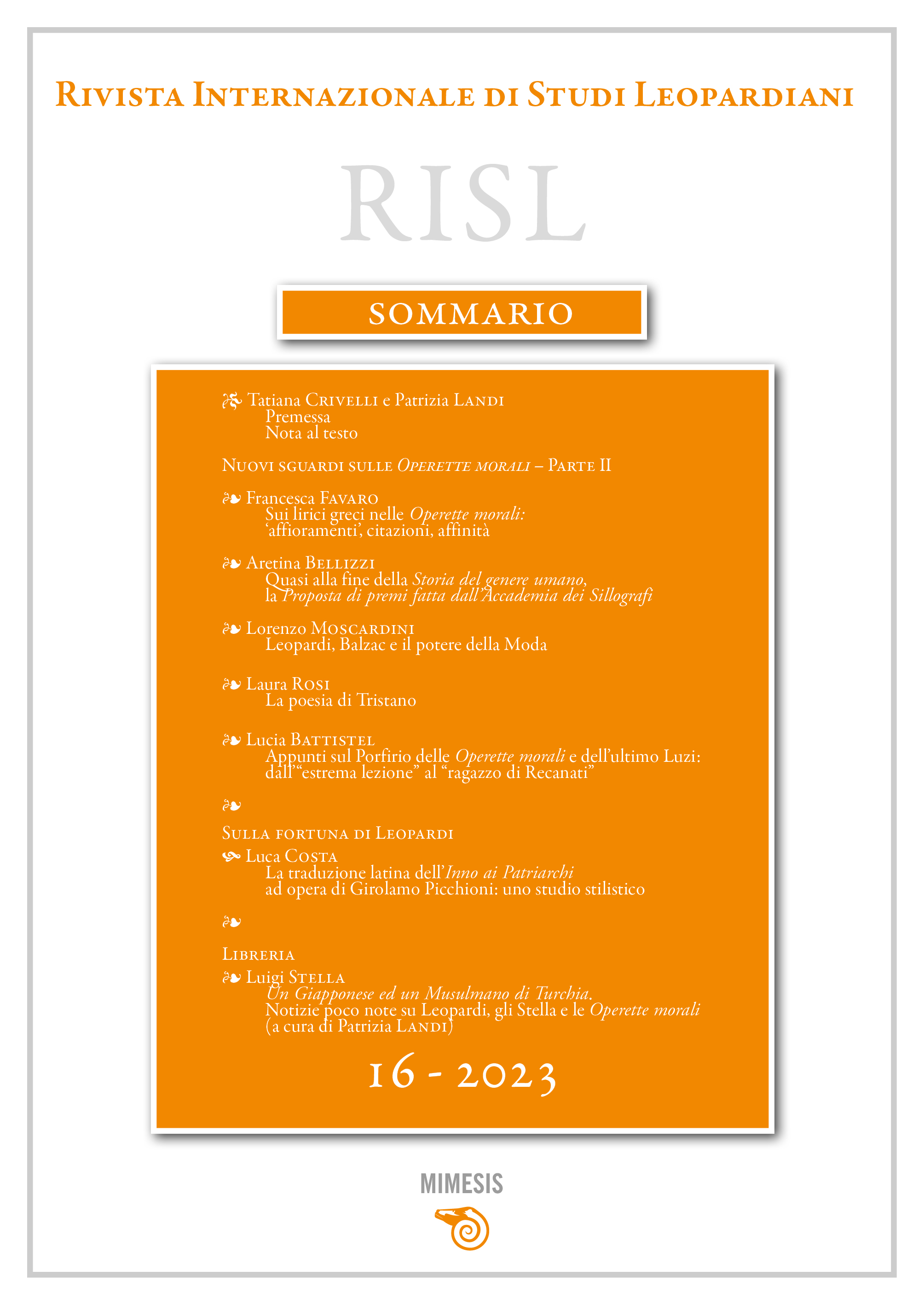La poesia di Tristano
Parole chiave:
Poetry, Death, Laughter, Silence, Desert.Abstract
The Operette morali, the book of the “apparent lightness”, is a deeply unified work yet progressive in its philosophical movement. In the last text, Dialogo di Tristano e di un amico, which we could consider to be the summa of the work, Tristano, the protagonist-author, is in dialogue with his melancholic book, traversed by poetic traces, and finds the reasons for writing in the characters who have preceded him. Before dying, Tristano – whose name captures the depth of ancient philosophy and modern European instances – leaves behind the writing of the ‘novel of his life’. He invents a new poetry of life, death and silence, which recovers links with Leopardi’s memory, through the brave crossing into the desert of existence, from lost dreams to the lucid critique of his noisy and culturally empty century. The truth of the cognatio between life and pain is sealed by Tristano in laughter, long outline of the book, the two-faced gaze that grasps life and death together, leading him to cross the silent threshold of a near and necessary death. Tristano establishes a dialogue with the readers, set to continue, creating a poetic space, that suggests the images of the extreme season of Leopardi’s poetry, foreseeing the decline of the moonlight in the Tramonto della luna and the desert in the Ginestra.






